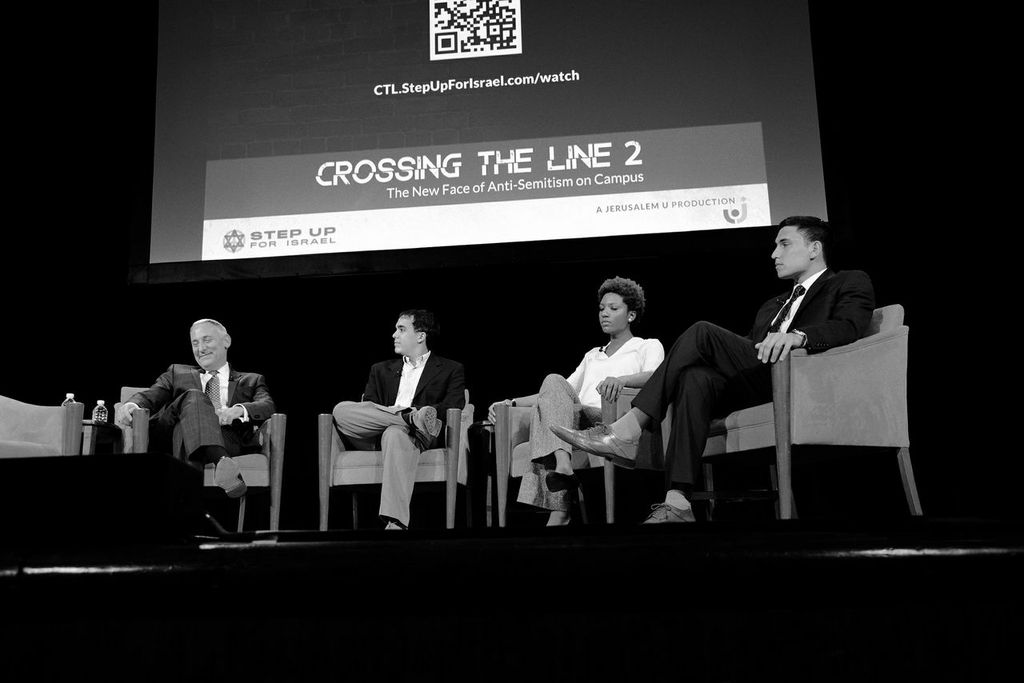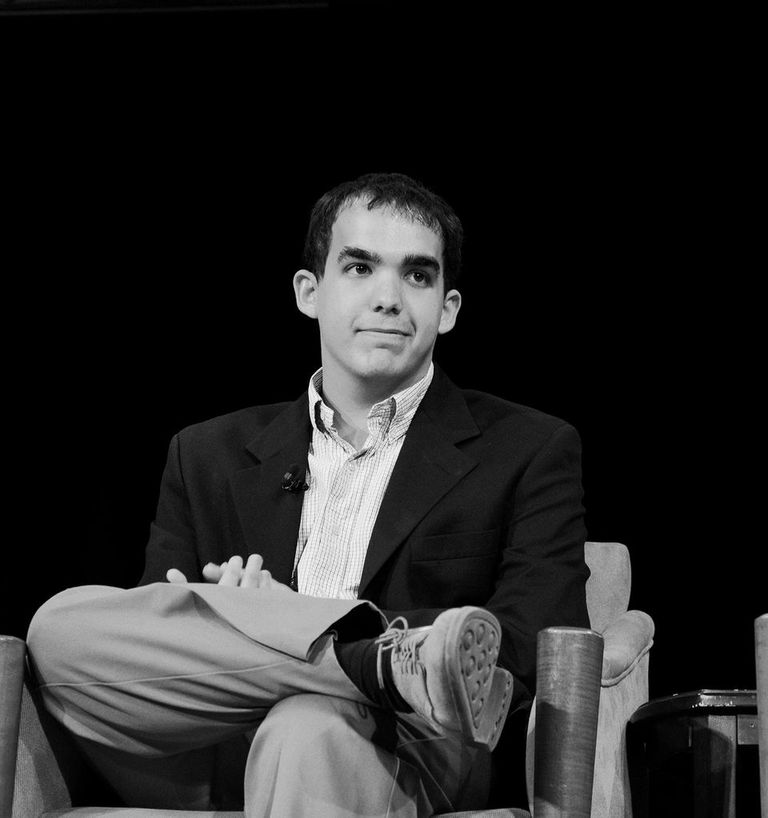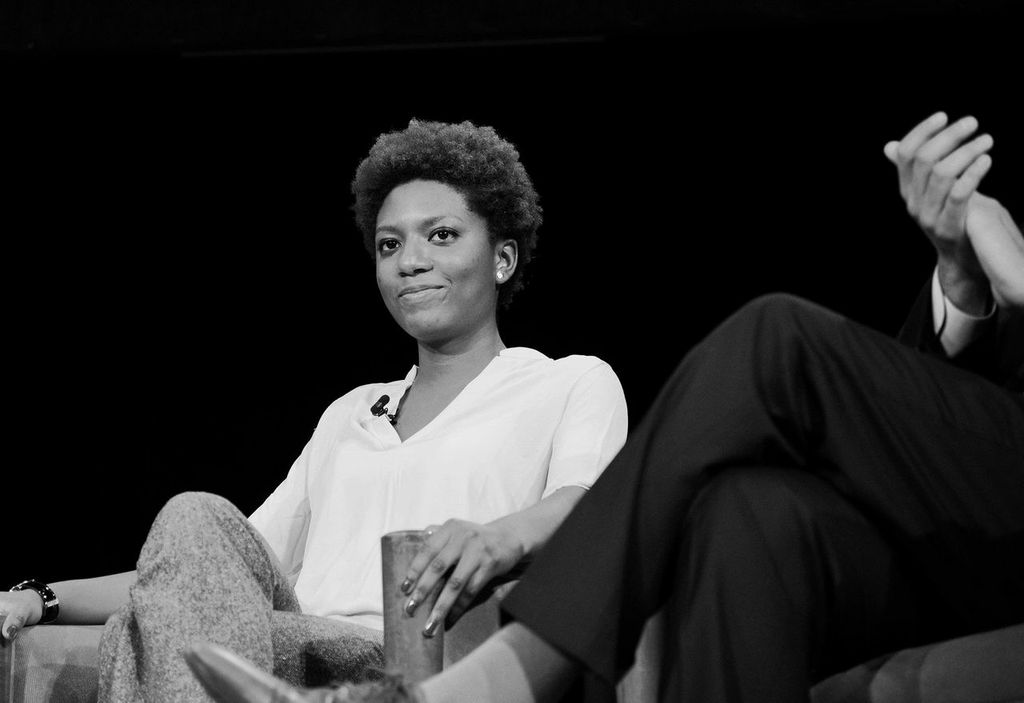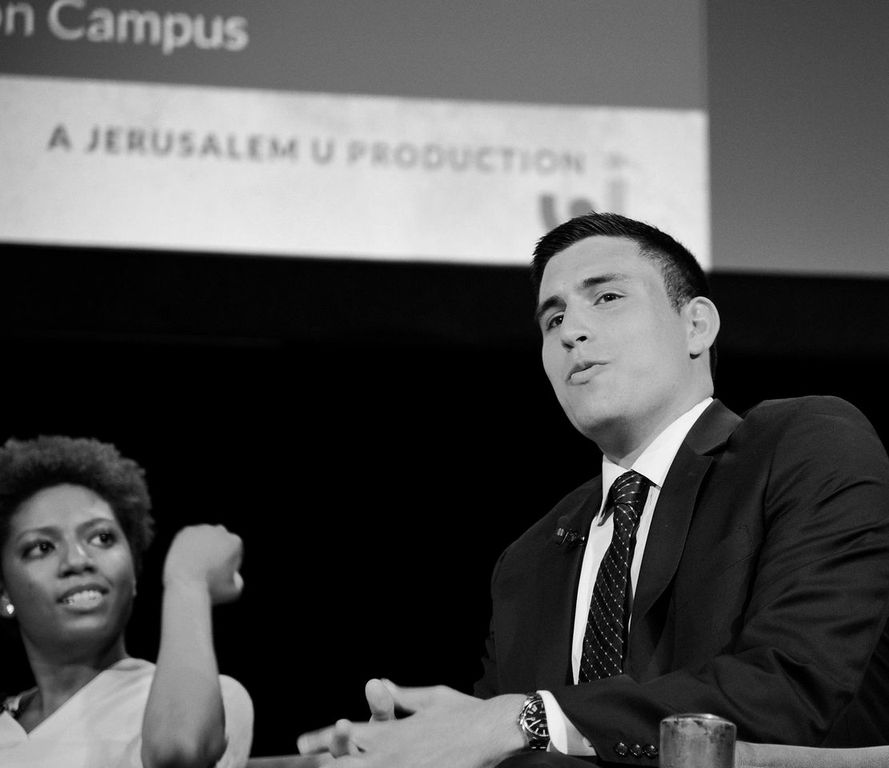By Chloe Valdary
This past Thursday, the groundbreaking documentary Crossing the Line 2 premiered at the 92st Y in New York. The film, produced by Jerusalem U, provided an in-depth look at the spread of the rise of anti-Semitism on college campuses, the vitriol of organizations like Students for Justice in Palestine (SJP), and the steadfast determination of Jewish students in the face of such attacks.
After the film screening was complete, my colleagues — Daniel Mael and Justin Hayet — spoke on a panel and discussed some of our personal encounters with anti-Semitism on campus. I spoke of how my friends and I encountered an anti-Israel speaker at Tulane University. I remembered how, before going to protest, my friends and I had reached out to our peers in the CAMERA community to get advice on how to confront the lecturers that would be promoting anti-Semitism on our campus.
Having an infrastructure in place to bounce ideas off of each other really helped to ensure that the best strategies are devised and methods are properly utilized when facing anti-Israel activists. After brainstorming, my friend Maor and I decided to make signs that said, ‘Inaccurate,’ and ‘Incorrect.’ We held them up each time the speaker said something inaccurate, and in doing so, forced him to justify his claims. We could tell that the speaker was unnerved as he did not expect us to express our protest with his presentation in this way.
Moreover, many in the audience questioned what they had heard precisely because we challenged the speaker. Indeed, many whispered among themselves, “I don’t know if that’s true,” after the lecture was over.
This method of activism — also known as Direct Action —is potent in two ways: It takes the platform from the speaker and shifts the center of attention from the lecturer to the demonstrator; it also forces the speaker to vindicate his position and undermines his status as an authority figure.
Direct Action also comes from a specific place in time. It has been used by many historically oppressed and marginalized groups of people, such as African-Americans during the civil rights movement. Thus, adopting this tactic can serve to create associations between the struggles of the past and our present striving for freedom.
After the panel discussion, I spoke with many in the audience who were fascinated with this method of protest, and who wanted to adopt it in their own activism. I encourage them as well as the entire pro-Israel community to consider these alternative forms of protest. They have a lasting effect on the audience — both dissenters and supporters alike.
Chloe Valdary is a consultant for the Committee for Accuracy in Middle East Reporting in America and a Fellow at the Lawfare Project.





